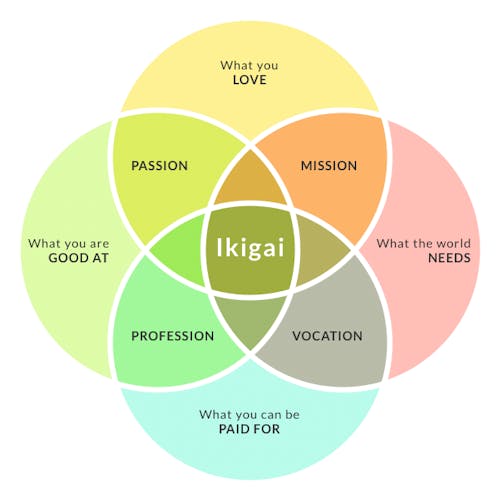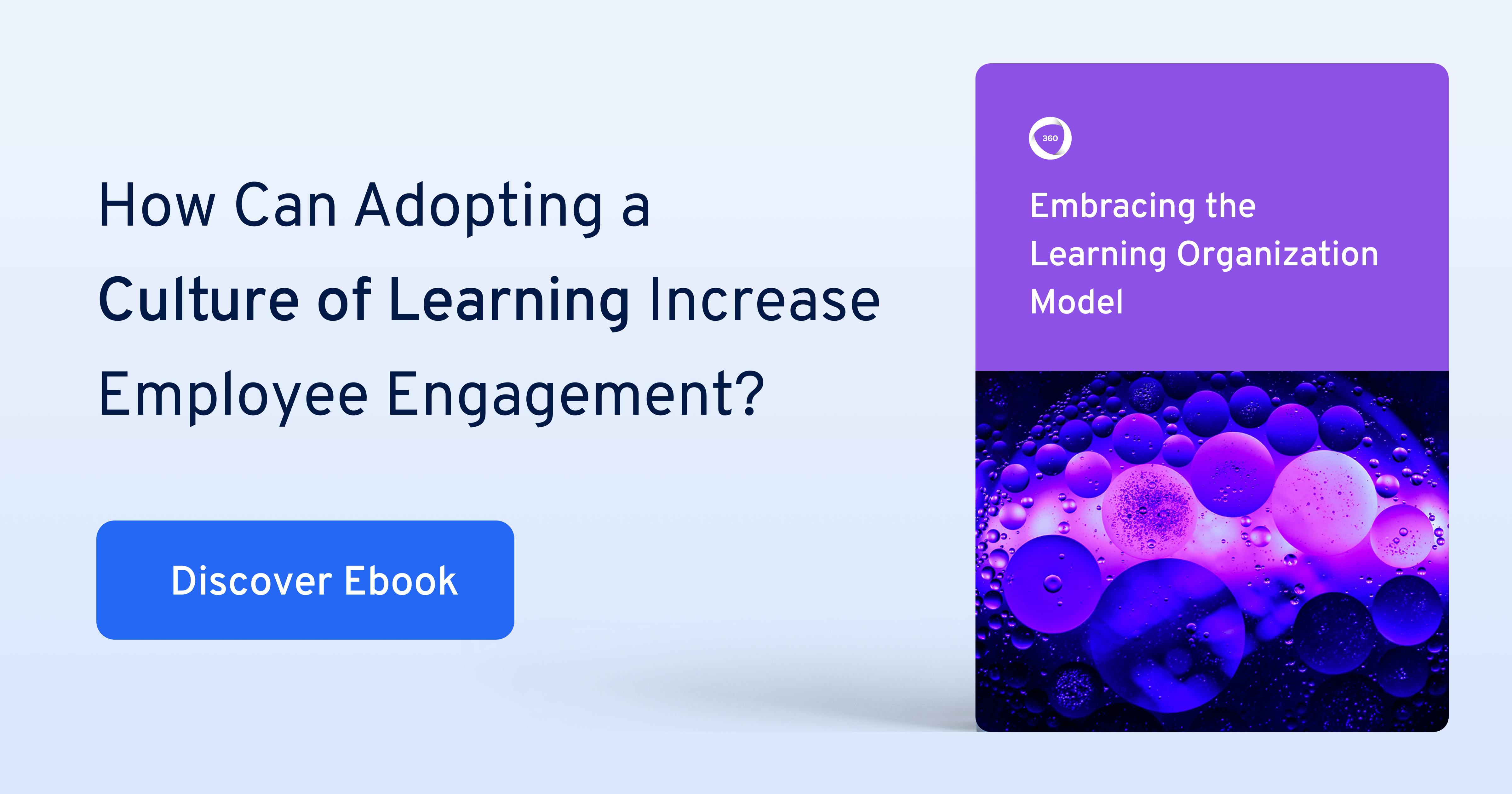What is Lifelong Learning, and Why Should you Turn Employees into Lifelong Learners?
In today’s knowledge-based economy, Lifelong Learning is crucial.
OECD research suggests that 32% of current jobs are likely to see significant changes in how they are carried out. A further 14% of jobs could be completely automated. Yet only two-in-five adults (41%) participate in education and training in any given year. Employees that aren’t evolving their skill sets risk falling behind.
Learning and Development teams are well-placed to drive the upskilling, reskilling, and continuous learning programs that underpin Lifelong Learning in the workplace.
Although Lifelong Learning can happen in any setting—formal or informal, at home or at work—L&D teams have a unique opportunity to support employees in their self-motivated Lifelong Learning initiatives.
Let’s take a look at what Lifelong Learning means, and its many benefits.
Lifelong Learning definition
Lifelong Learning is an approach to learning—whether in personal or professional contexts—that is continuous and self-motivated. Lifelong Learning can be formal or informal, and takes place throughout an individual’s life, ‘from cradle to grave.’
It’s most closely aligned to the learning theory of andragogy, or Adult Learning Theory, but also falls within the framework of Constructivism.
Why is Lifelong Learning important?
In the current globalized, fast-paced, and knowledge-driven economy, Lifelong Learning is both an imperative for the workforce and a source of personal fulfillment for individuals.
Benefits of Lifelong Learning for society
1. A stronger economy
The 21st century is no longer a labor-based economy, but a knowledge-based one, in which those that lack education risk unemployment and lower salaries. As the academic Alan Burton-Jones explains:
“The consumer economy will become a learning society. Firms that learn faster will beat their rivals. Learning will become a lifelong process, the biggest activity on the planet and the major growth market of the twenty-first century.”
As demonstrated by the OECD, individuals that pursue Lifelong Learning will not only benefit personally but will help build a stronger market: “a skilled workforce makes it easier for firms to develop and introduce new technologies and work organization practices, thereby boosting productivity and growth in the economy as a whole.”
Learning will become a lifelong process, the biggest activity on the planet and the major growth market of the twenty-first century.
2. A more equitable society
Many lifelong learners, especially in retirement, channel their curiosity into volunteerism, as recommended in the book, ‘Learning Later, Living Greater.’
These altruistic pursuits contribute to a fairer society and help older generations stay social and engage in meaningful activities.
Benefits of Lifelong Learning for individuals
1. Personal fulfillment
Learning that is self-directed leads the learner to a feeling of fulfillment (learning to satisfy curiosity, indulge a passion, return to lost hobbies…).
When this learning leads to finding a job that sits at the intersection of what someone is good at, what the world needs, and what they love doing, they have found their ‘reason for being’, as defined by the Japanese concept of Ikigai.
2. Professional development
As noted above, workers who continuously learn are more competitive in the job market and less likely to fall behind in the face of automation and the changing job landscape.
Karie Willyerd and Barbara Mistick, leaders in personal development and learning, recommend five practices to drive Lifelong Learning to ensure job security:
- Learn on the fly in any situation.
- Open your thinking to a world beyond where you are now.
- Connect to the people who can help you make your future happen.
- Be greedy about gaining experiences.
- Bounce forward and stay motivated through the ups and downs of a career.
Many employers also actively seek out those with a Lifelong Learning mentality, as Rachel Peck, Director of L&D at Harry’s, did.
As she explains, “We screen for values during the interview process, and one of our values is ‘improve always’ [...] That way, we self-select for people who have an inclination to be lifelong learners.”
3. Personal health
Continued learning as you age helps maintain brain plasticity, staving off illnesses like dementia.
A 2013 study by Robert Wilson concluded that “more frequent cognitive activity across the life span has an association with slower late-life cognitive decline.”
Similarly, Harvard Men’s Health Watch advises that "embracing a new activity that also forces you to think and learn and requires ongoing practice can be one of the best ways to keep the brain healthy."
Lifelong Learning examples
Lifelong Learning is self-directed. It can consist of informal initiatives that an individual pursues, ‘accidental learning,’ or it can take a more formal approach within established organizations (for a degree or certification, or not).
1. Informal Lifelong Learning
Learning doesn’t have to take place in a classroom. Adults can find Lifelong Learning opportunities in everyday activities:
- Nurturing curiosity.
- Attending a free class or workshop.
- Leaving one’s comfort zone.
Related: Need for Cognition: How to Inspire the 3 Types of Learner Curiosity
2. Formal Lifelong Learning
Formal Lifelong Learning usually takes the shape of traditional classroom learning, whether it’s skill-specific learning, learning to earn a degree or certificate, or vocational training:
- Online, non-degree granting programs, like FreeCodeCamp or Khan University.
- Continuing education programs, like those at The New School’s Adult & Continuing education programs.
- Vocational training, like those on careeronestop.org.
- Online or low residency degree granting programs, like those available at Pace University, Florida University, and George Washington University.
Lifelong Learning in the workplace
Although Lifelong Learning doesn’t have to take place in a professional context, it is often viewed as an important factor in career success. Learning Organizations in particular embrace the approach of Lifelong Learning.
For motivated adults, McKinsey & Company identified 7 essential elements of a Lifelong Learning mindset in a professional setting:
- Focus on growth.
- Become a serial master.
- Stretch.
- Build your personal brand and network.
- Own your development journey.
- Do what you love and discover your Ikigai (reason for being).
- Stay vital.

Collaborative Learning supports employees' Lifelong Learning
Although the benefits of Lifelong Learning are well-documented, not all adults embrace them—putting their own job security at risk.
Learning and Development teams that embrace Collaborative Learning in the workplace routinely see higher engagement and completion rates among employees. Since Collaborative Learning is based on self-directed, peer-to-peer and bottom-up learning, it’s well-placed to motivate and support Lifelong Learning among employees.
L&D teams looking to better understand the benefits of Collaborative Learning on learning outcomes can read our article, What is Collaborative Learning?




